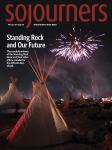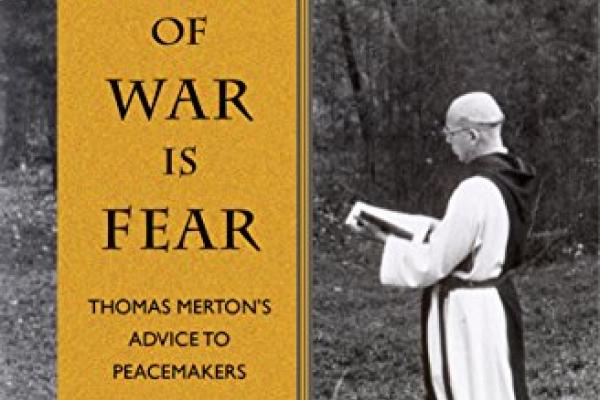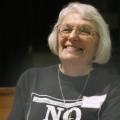DO WE LIVE in a post-Christian era? Catholic monk Thomas Merton thought so, back in 1962, when his anti-war book Peace in the Post-Christian Era was banned by monastic censors.
He would surely come to the same conclusion today, when we hear a pulpit Christianity still identified with war and nationalism and listen in shock to a new U.S. president woefully ignorant of the peril of nuclear war. Our deeply divided nation holds scant promise for peace in our streets or in the world, despite the growing chorus of Christian peacemakers.
This new book by Jim Forest adds both deep compassion and timely advice to that chorus. The wise words of Merton, who served unofficially as “pastor to the peace movement” during the Vietnam War, are needed now more than ever. Clearly titled chapters quote from Merton’s published writing as well as his letters to Forest and other peacemakers.
In October 1961, The Catholic Worker published Merton’s essay “The Root of War is Fear,” and Merton ran afoul of monastic censors. He was eventually silenced publicly but fortunately was allowed to circulate Peace in the Post-Christian Era in mimeographed form and to continue writing letters, although for several years everything passed through the censor’s hands. One of the delights of this book by Forest is the first publication of an uncensored and scathingly sardonic letter Merton wrote under the pseudonym “Marco J. Frisbee.”
This slim volume gives an overview of Merton’s all-too-short life and shows that he was influenced by Gandhi years before entering the monastery. It also details Forest’s relationship with Merton and his surprising first visit to Gethsemani—he was greeted by a Merton literally rolling in laughter. Forest and Merton engaged in an extraordinary epistolary friendship, with more letters from the searching monk to the searching young man than to anyone else.
Forest visited him several times and participated in the retreat for peacemakers at Gethsemani in fall 1964. (See Gordon Oyer’s book Pursuing the Spiritual Roots of Protest, reviewed in the December 2014 Sojourners.)
Forest sought Merton’s aid in co-founding the Catholic Peace Fellowship and confessed his discouragement in 1966 when his peacemaking efforts seemed to bear no fruit. The monk’s response was the now-famous “Letter to a Young Activist,” reprinted near the end of this book, first in its edited entirety and then with Forest’s comments on pertinent sections.
This letter should be required reading to all peacemakers in this era of fear and questioning. The advice hardest to hear and to put into practice: “Do not depend on the hope of results.” Rather, Merton writes, depend not on anything specific we do, but on “the value, the rightness, the truth of the work itself.” Further, he tells Forest—and us—that any good we do in the cause of peace doesn’t come from our own efforts but from allowing ourselves to be used by God’s love.
Hard advice indeed to progress-oriented peaceworkers. But Merton’s counsel remains crucial. We must continue to act not out of fear of a malignant “other” but simply for the rightness of our acts.
A final chapter rings clearly on the title of the book and warns that we cannot make fear the mainspring of our lives, because it robs us of creativity and freedom, both qualities we will need in the next four years as we face a presidency unlike any the U.S. has known.

Got something to say about what you're reading? We value your feedback!

